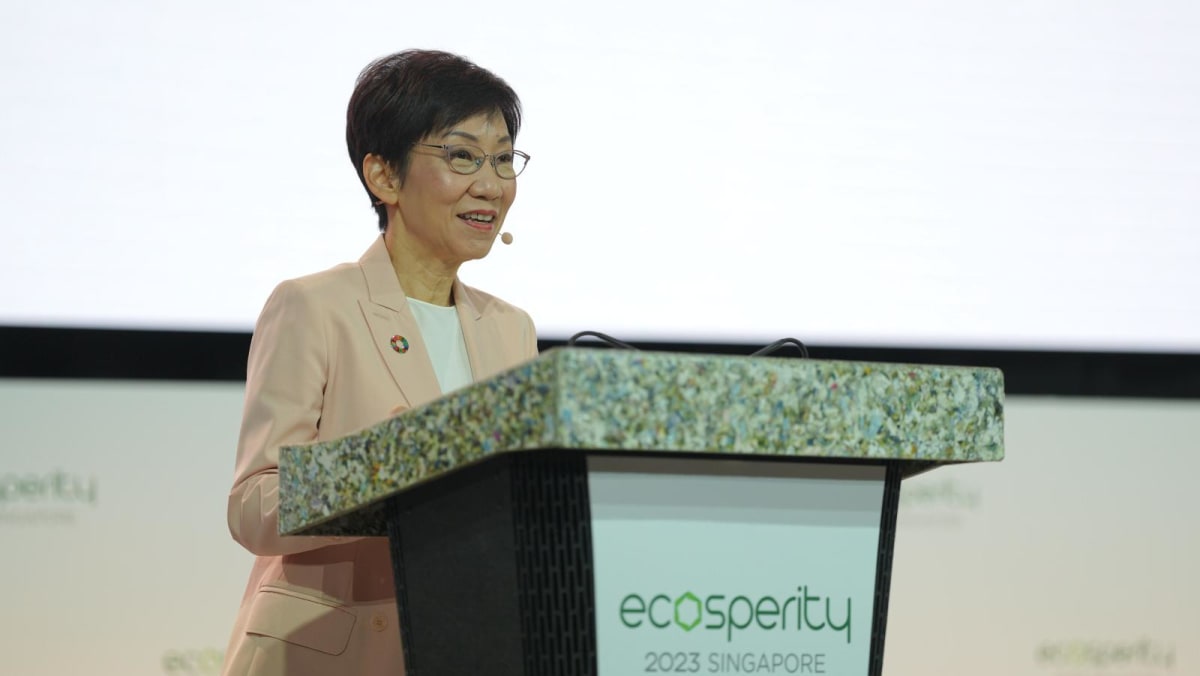
During her keynote address, Ms Fu said that Singapore is committed to meeting its national climate target to achieve net zero emissions by 2050.
Citing a report that mentioned finance, technology and international cooperation as three critical enablers for accelerated climate action, Ms Fu elaborated on how Singapore could contribute in these aspects.
Singapore must accelerate the development of decarbonisation technologies to make them commercially viable in order to harness their potential for decarbonisation at scale, Ms Fu said.
She raised the example of low-carbon hydrogen as a potential alternative to fossil fuels in the maritime and aviation sectors. Hydrogen can potentially supply up to half of Singapore’s power needs by 2050, she said.
“More importantly, it has the potential to unlock global energy trade, through its carrier forms that can be stored and transported over long distances. This will connect regions with abundant low-cost renewable energy with those that have limited renewable energy potential.
“However, the technology and supply chains are still nascent, and large-scale deployment has not yet been demonstrated.”
Another problem was the shortfall in funds to finance net zero goals. The solution to address this, Ms Fu said, is the scaling of blended finance, which is public, multilateral, or philanthropic funding “coming in as catalytic capital, to improve the bankability of green projects and encourage private investments”.
The development of credible carbon markets is another breakthrough in finance, as carbon credits are key instruments that “channel financing to mitigation projects which would otherwise not be bankable nor implementable”, said Ms Fu.
“(Singapore) will allow companies to use high-quality international carbon credits to offset up to five per cent of their taxable emissions from next year onwards. This could spur local demand in carbon markets, hence supporting the growth of a vibrant international carbon market and channel financing to mitigation projects internationally,” she added.
